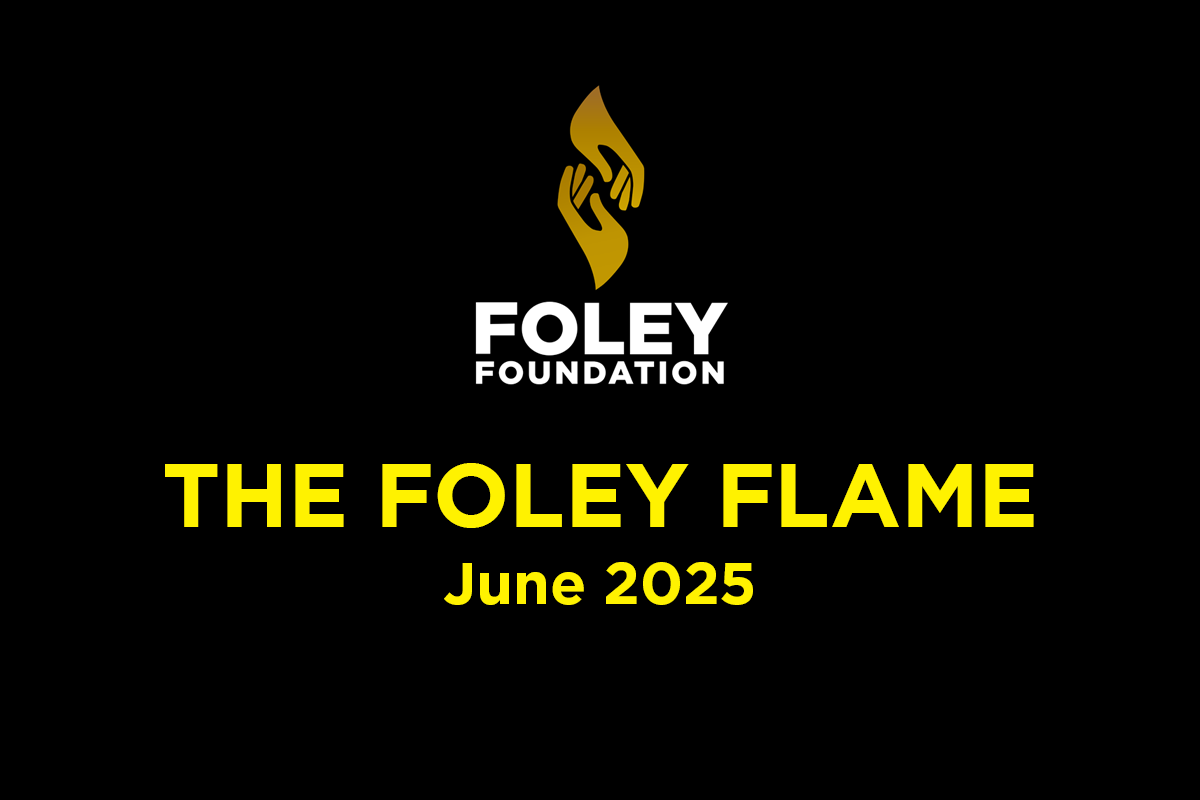By Hope Moses
Editor of Diversity and Inclusion at the Marquette Wire
“You Should Apply!” was the subject line of an email sent from my academic advisor a year ago and unknown to me at the time, the beginning of an experience that would significantly change my life. The email contained information about Marquette’s inaugural Foley Fellowship and the application form along with its due date. She encouraged me to apply, as the Foley Foundation was looking specifically for a Marquette University journalist. Although I was unsure if I was fit for the position, there was something about this opportunity that seemed too important to pass up on. So, I spent the entire night researching the Foley Foundation and its importance when a memory from my childhood came to me.
I remember flipping through news channels at my grandmother’s house in 2014, as I had done so many times before, and seeing Jim Foley on the news. I was 12 years old, but even at that age, without the verbiage, I could feel that his murder was a significant event – not just in America – but around the world; not just to journalists, but to people. Seven years later, I was presented with the opportunity to work for the Foley Foundation and thus, work in his name. To some, finding a natural passion for journalism and attending Marquette, as Jim Foley did, may sound like a mere coincidence. To me, it felt like fate.
So, I took the chance. I stayed up all night finishing my application. One of the questions required applicants to comment on their understanding of moral courage in action. Jim believed in moral courage and as I said then and still believe true today, moral courage is not the absence of fear. It is fulfilling a responsibility despite fear. After completing my second year of journalism at Marquette (spoiler alert) as the Foley Fellow, I have been able to tap into moral courage of my own.
As a student journalist that has had tense interactions while reporting, I understand how difficult it can be to protect oneself, especially as a woman journalist and journalist of color. This is is why I reached out to 150 student journalists from college news organizations across the nation at the beginning of my fellowship,. I shared with them the Foundation’s safety modules to emphasize that while moral courage and journalists’ responsibilities to the public go together, fear and danger should not be the exception, much less the rule. Dismantling the notion that some careers are “just dangerous” and instead, getting to the root cause of the danger itself, is something I think journalists of my generation can start if we simply have that conversation. Another focus of this outreach was to highlight that journalism safety does not start when you are a professional journalist; it starts now.
Outside of this, I have had the pleasure of working on several other outreach projects, including sharing the Foundation’s safety modules with journalism faculty at universities around the nation. From that outreach, 18 more universities have expressed interest in our modules and plan to use them in the upcoming semester.
This fellowship and its impact on me as an individual goes far beyond the work I have done. Through this fellowship, I deepened my understanding of not only what it means to be a journalist, but what it means to be human. Every individual, regardless of who they are, deserves a long career without the threat and fear of violence. Every individual, regardless of who they are, deserves to see their loved ones again. Unfortunately, that is not the reality for all journalists, which is why the work the foundation does is incredibly beautiful and important.
As I prepare to engage the world a year later with the knowledge I have acquired, I leave this fellowship a changed person and hope to continue spreading awareness of journalism health and safety with those I encounter. I want to thank the James P. Ruder Foundation for providing the financial support to make this fellowship possible and the James W. Foley Legacy Foundation for giving me the opportunity to be Marquette’s inaugural Foley Fellow.
